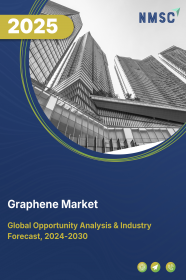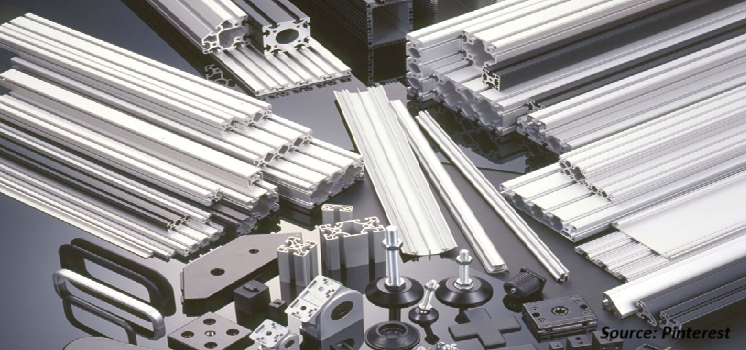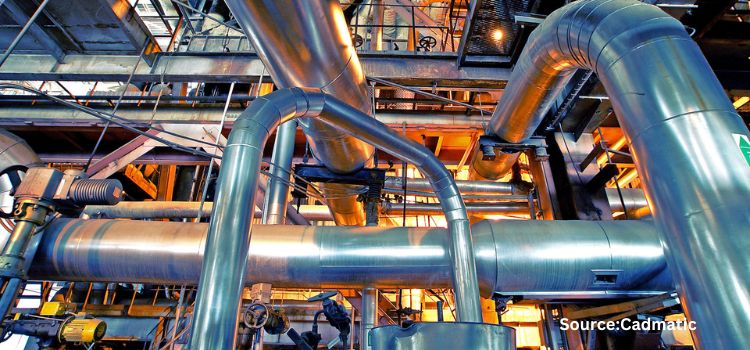
Advanced Glass Market by Glass Type (Laminated Glass, Coated Glass, Toughened Glass, and Others), Function (Safety & Security, High Performance, Solar Control, Optics & Lighting, and Others), End-Users (Construction, Electronics, Aerospace & Defense, Automotive, Sports & Leisure, and Others)– Global Opportunity Analysis and Industry Forecast, 2024–2030
Industry: Materials and Chemical | Publish Date: 27-Nov-2024 | No of Pages: 373 | No. of Tables: 265 | No. of Figures: 210 | Format: PDF | Report Code : MC9
US Tariff Impact on Advanced Glass Market
Trump Tariffs Are Reshaping Global Business
Market Overview
The global Advanced Glass Market size was valued at USD 75.0 billion in 2023, and is predicted to reach USD 118.1 billion by 2030, with a CAGR of 6.70% from 2024 to 2030. Advanced glasses represent a superior class of glass products crafted from soda-ash, natural gas, and silica sand to enhance performance and offer unique functionalities. These glasses are engineered for specific applications, such as construction, automotive, electronics, and energy sectors, as well as aerospace and defense among others.
Advanced glasses possess properties such as high strength, thermal resistance, transparency & conductivity, resistance to ultraviolet rays, and sound reduction, among others, making advanced glasses crucial contributors to high-performance solutions across a range of industries.
Growing Demand for Advanced Glass in Various Industries Drives Market Growth
The rapidly increasing demand for advanced glass in multiple industries, including construction, automotive, electronics, and aerospace, reflects a growing recognition of the unique properties and applications of this specialized material. In the construction sector, advanced glass is sought after for its energy-efficient and environmentally friendly features, contributing to sustainable building practices. In the automotive industry, the emphasis on lightweight materials and enhanced safety has led to the adoption of advanced glass for vehicle components, promoting fuel efficiency and occupant protection.
Moreover, in the electronics and aerospace sectors, the unique optical and thermal properties of advanced glass make it integral for applications such as displays, sensors, and aircraft components. This increasing versatility highlights the crucial role that advanced glass plays in addressing the evolving technological and environmental needs of diverse industries, propelling its escalating demand.
Rapid Urbanization and Infrastructure Development Across the Globe Drives the Growth of the Market
The increasing trend of smart cities and ongoing infrastructure projects globally is leading to a rising demand for advanced glass, particularly in the field of construction. The construction industry stands as the largest sector globally, wielding substantial influence over the world's economy. Encompassing real estate, infrastructure, and industrial structures, construction commands a significant 13 percent share of the global GDP. As a testament to its importance, research and development (R&D) investments among the top 2,500 construction companies worldwide have surged by a remarkable 77 percent since 2013.
However, this growth comes with environmental consequences, as evidenced by a concerning uptick in CO2 emissions from building operations. Currently, these emissions have soared to an all-time high, hovering around 10 GtCO2 in 2022, an approximate 5 percent increase from 2020. Amidst these challenges, the construction industry is seeking innovative solutions to address environmental concerns and drive sustainability.
Advanced glass not only contributes to energy efficiency but also provides durability and an appealing aesthetic. Architects and developers are increasingly turning to advanced glass due to its versatile properties, making it a crucial choice for sustainable and high-performance solutions in construction projects. As the demand for smarter and more environmentally conscious urban spaces continues to grow, advanced glass emerges as a major component in shaping the landscape of modern construction, meeting the evolving requirements of infrastructure projects worldwide.
High Carbon Emission during Glass Manufacturing Restrains Market Growth
The growth of the glass manufacturing market faces a notable restraint due to its high carbon footprint. The energy-intensive nature of glass production processes, especially the high-temperature melting of raw materials, contributes significantly to greenhouse gas emissions. This environmental impact has become a focal point of concern for consumers, regulatory authorities, and industries prioritizing sustainability.
Introduction of Smart Glass Creates Market Opportunities
The introduction of smart glasses such as electrochromic and thermochromic glass offers dynamic control over transparency, tint, and light transmission, responding to external conditions or user preferences. The ability to adapt to changing environmental factors and user needs positions smart glasses at the forefront of cutting-edge technology, with applications ranging from energy-efficient windows in buildings to adaptive automotive sunroofs.
This not only enhances user experience but also brings about substantial opportunities for growth in the advanced glass market. As these smart glass technologies continue to evolve, they are poised to revolutionize various industries, driving the expansion of the advanced glass market.
North America Dominates the Advanced Glass Market
The advanced glass market is experiencing growth in North America, primarily due to the expansion of the construction industry. The increased construction activities in the region, spanning residential, commercial, and infrastructure projects, are fueling the demand for advanced glass solutions.
Architects and builders are increasingly choosing advanced glass for its diverse applications, including energy-efficient windows, and contemporary glass structures which provide enhanced insulation, solar control, and aesthetic appeal, contribute to its rising popularity in construction. As urbanization and infrastructure development continue in North America, the advanced glass market is expected to grow, playing a vital role in shaping the region's architectural landscape.
Moreover, the advanced glass market experiences significant growth driven by the presence of key industry players such as Corning Incorporated, GrayGlass Company, and Advanced Glass & Mirror, Inc. These leading companies play a crucial role in steering the market's expansion through their expertise, innovations, and market influence. Their active involvement in advancing glass technologies contributes to various sectors, including construction, automotive, electronics, and aerospace.
For instance, in December 2022, Corning Incorporated launched Corning Gorilla Glass Victus 2, an advanced glass designed for improved durability and drop resistance on rough surfaces such as concrete. With an emphasis on scratch resistance and drop performance, the innovation addresses the growing demand for robust smartphone screens. As these key players lead the way in innovation, they play a major role in broadening the application and adoption of advanced glass, driving market growth.
Asia-Pacific is Expected to Show Steady Growth in the Advanced Glass Market
The growing automotive industry in the Asia-Pacific region is the major factor propelling the growth of the advanced glass market, driven by the increasing demand for vehicles and the adoption of advanced glass technologies. Advanced glass finds extensive use in automobiles for various purposes, such as windows glass, windshields, heads-up displays, and sunroofs. These glass components offer improved safety features, such as shatter resistance and enhanced visibility while also improving energy efficiency by offering solar control properties, reducing the heat entering the vehicle interior. Several countries, including China, Japan, and South Korea, play pivotal roles in the global automotive industry.
China, in particular, stands as the leader in the global automotive industry, producing a staggering 27.02 million units in 2022. Japan, on the other hand, also contributes significantly with a production of 7.83 million vehicles, while South Korea, produced 3.75 million vehicles in 2022. As the automotive industry in the Asia-Pacific region continues to grow, the diverse applications of advanced glass are poised to rise, boosting its demand in this region.
Moreover, the advanced glass market in the Asia-Pacific region is experiencing significant growth due to increasing investments in the construction sector. The rising focus on sustainability is further boosting the demand for advanced glass, which is known for its energy-efficient and environmentally sustainable properties such as thermal insulation and solar control in modern building designs. Governments and major construction companies across Asia-Pacific are investing huge funds into the development of both public and private infrastructure, buildings, and airports.
In China, the construction industry reached a substantial USD 4.4 trillion in 2022, driven by the huge number of projects initiated by both the government and the private sector. Also, in India, the government is proactively investing in infrastructure development, launching initiatives like the National Infrastructure Pipeline (NIP) for the fiscal year 2019-25, among other projects. This growing construction activity is driving the demand for advanced glass in this region.
Competitive Landscape
Several market players operating in the advanced glass industry include Asahi Glass Co., Ltd., Saint Gobain S.A., Nippon Sheet Glass Co., Ltd., Corning Inc., GrayGlass Company, Schott AG, Advanced Glass & Mirror Inc., Guardian Industries, Sisecam Group, PPG Industries, Inc., Abrisa Technologies, Central Glass Co., Ltd., Euroglas GmbH, Fuyao Glass Industry Group Co. Ltd., Advanced Glass & Mirror Inc., and others. These companies are adopting various strategies such as establishing new product lines and the development of sustainable glass to remain dominant in the advanced glass market.
For instance, in November 2023, Nippon Sheet Glass Co., Ltd (NSG) launched a new production line in Malaysia, which started operations for a new transparent conductive oxide (TCO) glass. The TCO glass produced is supplied to First Solar’s manufacturing operations in Southeast Asia. This initiative follows NSG Group’s commitment to meeting the increasing global demand for solar panels.
Moreover, in June 2023, Saint-Gobain Glass launched the production of India’s first low-carbon glass, aiming for a 40% reduction in carbon footprint compared to the existing products. The new glass addresses the need for sustainable building materials in India’s construction industry, contributing to the reduction of both operational and embodied carbon in buildings.
Advanced Glass Market Key Segments:
By Glass Type
-
Laminated Glass
-
Coated Glass
-
Toughened Glass
-
Others
By Function
-
Safety & Security
-
High Performance
-
Solar Control
-
Optics & Lighting
-
Others
By End-Users
-
Construction
-
Electronics
-
Aerospace & Defense
-
Automotive
-
Sports & Leisure
-
Others
By Region
-
North America
-
The U.S.
-
Canada
-
Mexico
-
-
Europe
-
The U.K.
-
Germany
-
France
-
Italy
-
Spain
-
Denmark
-
Netherlands
-
Finland
-
Sweden
-
Norway
-
Russia
-
Rest of Europe
-
-
Asia-Pacific
-
China
-
Japan
-
India
-
South Korea
-
Australia
-
Indonesia
-
Singapore
-
Taiwan
-
Thailand
-
Rest of Asia-Pacific
-
-
Rest of the World (RoW)
-
Latin America
-
Middle East
-
Africa
-
Key Players
-
Asahi Glass Co., Ltd.
-
Saint Gobain S.A.
-
Nippon Sheet Glass Co., Ltd.
-
Corning Inc.
-
GrayGlass Company
-
Schott AG
-
Advanced Glass & Mirror Inc.
-
Guardian Industries
-
Sisecam Group
-
PPG Industries, Inc.
-
Abrisa Technologies
-
Central Glass Co., Ltd.
-
Euroglas GmbH
-
Fuyao Glass Industry Group Co. Ltd.
-
Advanced Glass & Mirror Inc.
REPORT SCOPE AND SEGMENTATION:
|
Parameters |
Details |
|
Market Size in 2023 |
USD 75.0 Billion |
|
Revenue Forecast in 2030 |
USD 118.1 Billion |
|
Growth Rate |
CAGR of 6.70% from 2024 to 2030 |
|
Analysis Period |
2023–2030 |
|
Base Year Considered |
2023 |
|
Forecast Period |
2024–2030 |
|
Market Size Estimation |
Billion (USD) |
|
Growth Factors |
Growing demand for advanced glass in numerous industries drives the market growth Rapid urbanization and rising infrastructural projects worldwide boost the market |
|
Countries Covered |
28 |
|
Companies Profiled |
15 |
|
Market Share |
Available for 10 companies |
|
Customization Scope |
Free customization (equivalent up to 80 working hours of analysts) after purchase. Addition or alteration to country, regional, and segment scope. |
|
Pricing and Purchase Options |
Avail customized purchase options to meet your exact research needs. |

















 Speak to Our Analyst
Speak to Our Analyst





















